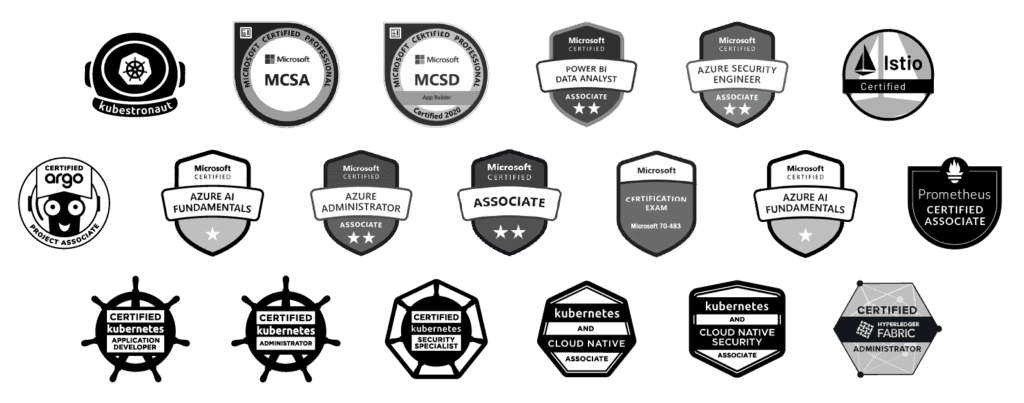Introduction
In the fast-paced world of technology and business, staying ahead of the competition requires innovative solutions that can streamline operations, enhance scalability, and improve efficiency. One such solution that has gained immense popularity is Kubernetes. Let’s explore the ins and outs of Kubernetes and delve into the ways it can help transform your company. By answering a series of essential questions, we provide a clear understanding of Kubernetes and its significance in modern business landscapes.
What is Kubernetes?
Kubernetes, often abbreviated as K8s, is an open-source container orchestration platform that automates the deployment, scaling, and management of containerized applications. It was originally developed by Google and is now maintained by the Cloud Native Computing Foundation (CNCF). Kubernetes allows you to manage complex applications and services by abstracting away the underlying infrastructure complexities.
How Can Kubernetes Help Your Company?
Kubernetes offers a wide array of benefits that can significantly impact your company’s operations and growth:
1. Efficient Resource Utilization: Kubernetes optimizes resource allocation by dynamically scaling applications based on demand, thus minimizing waste and reducing costs.
2. Scalability: With Kubernetes, you can easily scale your applications up or down to accommodate varying levels of traffic, ensuring a seamless user experience.
3. High Availability: Kubernetes provides automated failover and load balancing, ensuring that your applications are always available even if individual components fail.
4. Consistency: Kubernetes enables the deployment of applications in a consistent manner across different environments, reducing the chances of errors due to configuration differences.
5. Simplified Management: The platform simplifies the management of complex microservices architectures, making it easier to monitor, troubleshoot, and update applications.
6. DevOps Integration: Kubernetes fosters a culture of collaboration between development and operations teams by providing tools for continuous integration and continuous deployment (CI/CD).
What is Veritas Automata’s connection to Kubernetes?
Unified Framework for Diverse Applications: Kubernetes serves as the underlying infrastructure supporting HiveNet’s diverse applications. By functioning as the backbone of the ecosystem, it allows VA to seamlessly manage a range of technologies from blockchain to AI/ML, offering a cohesive platform to develop and deploy varied applications in an integrated manner.
Edge Computing Support: Kubernetes fosters a conducive environment for edge computing, an essential part of the HiveNet architecture. It helps in orchestrating workloads closer to where they are needed, which enhances performance, reduces latency, and enables more intelligent data processing at the edge, in turn fostering the development of innovative solutions that are well-integrated with real-world IoT environments.
Secure and Transparent Chain-of-Custody: Leveraging the advantages of Kubernetes, HiveNet ensures a secure and transparent digital chain-of-custody. It aids in the efficient deployment and management of blockchain applications, which underpin the secure, trustable, and transparent transaction and data management systems that VA embodies.
GitOps and Continuous Deployment: Kubernetes naturally facilitates GitOps, which allows for version-controlled, automated, and declarative deployments. This plays a pivotal role in HiveNet’s operational efficiency, enabling continuous integration and deployment (CI/CD) pipelines that streamline the development and release process, ensuring that VA can rapidly innovate and respond to market demands with agility.
AI/ML Deployment at Scale: Kubernetes enhances the HiveNet architecture’s capability to deploy AI/ML solutions both on cloud and edge platforms. This facilitates autonomous and intelligent decision-making across the HiveNet ecosystem, aiding in predictive analytics, data processing, and in extracting actionable insights from large datasets, ultimately fortifying VA’s endeavor to spearhead technological advancements.
Kubernetes, therefore, forms the foundational bedrock of VA’s HiveNet, enabling it to synergize various futuristic technologies into a singular, efficient, and coherent ecosystem, which is versatile and adaptive to both cloud and edge deployments.
What Do Companies Use Kubernetes For?
Companies across various industries utilize Kubernetes for a multitude of purposes:
Web Applications: Kubernetes is ideal for deploying and managing web applications, ensuring high availability and efficient resource utilization.
E-Commerce: E-commerce platforms benefit from Kubernetes’ ability to handle sudden traffic spikes during sales or promotions.
Data Analytics: Kubernetes can manage the deployment of data processing pipelines, making it easier to process and analyze large datasets.
Microservices Architecture: Companies embracing microservices can effectively manage and scale individual services using Kubernetes.
IoT (Internet of Things): Kubernetes can manage the deployment and scaling of IoT applications and services.
The Key Role of Kubernetes
At its core, Kubernetes serves as an orchestrator that automates the deployment, scaling, and management of containerized applications. It ensures that applications run consistently across various environments, abstracting away infrastructure complexities.
Do Big Companies Use Kubernetes?
Yes, many big companies, including tech giants like Google, Microsoft, Amazon, and Netflix, utilize Kubernetes to manage their applications and services efficiently. Its adoption is not limited to tech companies; industries such as finance, healthcare, and retail also leverage Kubernetes for its benefits.
Why Use Kubernetes Over Docker?
While Kubernetes and Docker serve different purposes, they can also complement each other. Docker provides a platform for packaging applications and their dependencies into containers, while Kubernetes offers orchestration and management capabilities for these containers. Using Kubernetes over Docker allows for automated scaling, load balancing, and high availability, making it suitable for complex deployments.
What Kind of Applications Run on Kubernetes?
Kubernetes is versatile and can accommodate a wide range of applications, including web applications, microservices, data processing pipelines, artificial intelligence, machine learning, and IoT applications.
How Would Kubernetes Be Useful in the Life Sciences, Supply Chain, Manufacturing, and Transportation?
In various Life Sciences, Supply Chain, Manufacturing, and Transportation, Kubernetes addresses common challenges like scalability, high availability, efficient resource management, and consistent application deployment. Its automation and orchestration capabilities streamline operations, reduce downtime, and improve user experiences.
Do Companies Use Kubernetes?
Absolutely, companies of all sizes and across industries are adopting Kubernetes to enhance their operations, improve application management, and gain a competitive edge.
Kubernetes Real-Life Example
Consider a media streaming platform that experiences varying traffic loads throughout the day. Kubernetes can automatically scale the platform’s backend services based on demand, ensuring smooth streaming experiences for users during peak times.
Why is Kubernetes a Big Deal?
Kubernetes revolutionizes the way applications are deployed and managed. Its automation and orchestration capabilities empower companies to scale effortlessly, reduce downtime, and optimize resource utilization, thereby driving innovation and efficiency.
Importance of Kubernetes in DevOps
Kubernetes plays a pivotal role in DevOps by enabling seamless collaboration between development and operations teams. It facilitates continuous integration, continuous delivery, and automated testing, resulting in faster development cycles and higher-quality releases.
Benefits of a Pod in Kubernetes
A pod is the smallest deployable unit in Kubernetes, representing a single instance of a running process. Pods enable co-location of tightly coupled containers, share network namespaces, and simplify communication between containers within the same pod.
Number of Businesses Using Kubernetes
As of my last update in September 2021, thousands of businesses worldwide had adopted Kubernetes. The exact number may have increased significantly since then.
What Can You Deploy on Kubernetes?
You can deploy a wide range of applications on Kubernetes, including web servers, databases, microservices, machine learning models, and more. Its flexibility makes it suitable for various workloads.
Business Problems Kubernetes Solves
Kubernetes addresses challenges related to scalability, resource utilization, high availability, application consistency, and automation, ultimately enhancing operational efficiency and customer experiences.
Is Kubernetes Really Useful?
Yes, Kubernetes is highly useful for managing modern applications and services, streamlining operations, and supporting growth.
Challenges of Running Kubernetes
Running Kubernetes involves challenges such as complexity in setup and configuration, monitoring, security, networking, and ensuring compatibility with existing systems.
When Should We Not Use Kubernetes?
Kubernetes may not be suitable for simple applications with minimal scaling needs. If your application’s complexity doesn’t warrant orchestration, using Kubernetes might introduce unnecessary overhead.
Kubernetes and Scalability
Kubernetes excels at enabling horizontal scalability, allowing you to add or remove instances of an application as needed to handle changing traffic loads.
Companies Moving to Kubernetes
Companies are adopting Kubernetes to modernize their IT infrastructure, increase operational efficiency, and stay competitive in the digital age.
Google’s Contribution to Kubernetes
Google open-sourced Kubernetes to benefit the community and establish it as a standard for container orchestration. This move aimed to foster innovation and collaboration within the industry.
Kubernetes vs. Cloud
Kubernetes is not a replacement for cloud platforms; rather, it complements them. Kubernetes can be used to manage applications across various cloud providers, making it easier to avoid vendor lock-in.
Biggest Problem with Kubernetes
One major challenge with Kubernetes is its complexity, which can make initial setup, configuration, and maintenance daunting for newcomers.
Not Using Kubernetes for Everything
Kubernetes may not be necessary for simple applications with minimal requirements or for scenarios where the overhead of orchestration outweighs the benefits.
Kubernetes’ Successor
As of now, there is no clear successor to Kubernetes, given its widespread adoption and continuous development. However, the technology landscape is ever-evolving, so future solutions may emerge.
Choosing Kubernetes Over Docker
Kubernetes and Docker serve different purposes. Docker helps containerize applications, while Kubernetes manages container orchestration. Choosing Kubernetes over Docker depends on your application’s complexity and scaling needs.
Is Kubernetes Really Needed?
Kubernetes is not essential for every application. It’s most beneficial for complex applications with scaling and management requirements.
Kubernetes: The Future
Kubernetes is likely to remain a fundamental technology in the foreseeable future, as it continues to evolve and adapt to the changing needs of the industry.
Kubernetes’ Demand
Kubernetes was in high demand due to its role in modern application deployment and management. Given its continued growth, it’s likely still in demand today.
Conclusion
In conclusion, Kubernetes is a transformative technology that offers a wide range of benefits for companies seeking to enhance their operations, streamline application deployment, and improve scalability. By automating and orchestrating containerized applications, Kubernetes empowers businesses to stay competitive in a rapidly evolving technological landscape. As industries continue to adopt Kubernetes, its significance is set to endure, making it a cornerstone of modern IT strategies.











